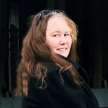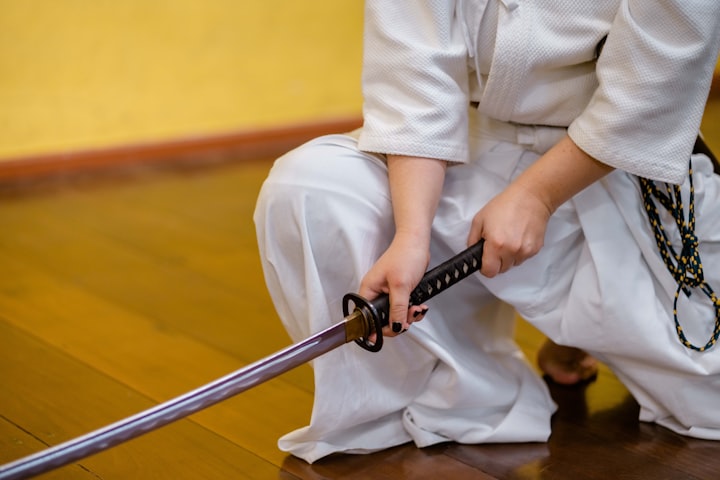Weird Tammy
I longed to be invisible...

I always stuck out like a proverbial sore thumb, as much as I just wanted to blend, to be like everyone else; to be invisible. But I was the one who spoke when it was best to remain silent, and who invented my own birthday parties which classmates showed up to, only to find no party. And it never helped that I was the chubby kid in the small town with the flipped up natural curls. What is it about body fat that brings out “Lord of the Flies” mentality in kids?
I lived in a shack that I didn’t know was a shack but other people did. “Tar paper Tammy”, “Weird Tammy”, “Tubby Tammy.” We recognize this as bullying now...it has been named; but back then, it was “just teasing.” Did it make us stronger or did it still kill us when it had a different name?
We were a dirt poor family, but we weren’t stupid, and we weren’t dirty. So when Elizabeth Kent encountered me on the walk home from 5th grade, at the intersection of Main and Poplar, right next to the red brick hardware store, I held my own. I had just ducked into the pharmacy and was sucking on a green apple candy stick when I came out and there she was. Petite, blond, freckled and all horns and rattles. “It’s weird fat Tammy” she said, with her face all twisted up in nastiness. Everyone knew the Kent family. If I was a misfit, she most certainly was. I just looked at her and kept sucking on my candy stick. So she ran up and shoved me as hard as she could. My extra layer of flesh saved me from certain injury against the brick wall.
“Do you like to shove people around because your mama doesn’t wash your clothes and you can’t hit your daddy back?” I felt guilty immediately as her face fell and her chin began to quiver. My mouth opened in apology just as her sadness turned to fury and she launched at me like a feral cat. She knocked my candy stick into my hair where it glued itself and she ripped the buttons off my paisley frock while she cursed and cried. I didn’t fight back but I did manage to remove her from myself and walk home. And I learned that day that sometimes it is less ugly to be bullied than to be the bully.
But it didn’t change anything. I still obsessively blurted out lines of Robert Frost poetry during math class, chewed my nails to the quick and hosted imaginary birthday parties.
This is not about my alcoholic father who was AWOL, or my beautiful mother who worked two jobs to stay off public assistance. It’s not about my genius brother who could have worked for NASA if he hadn’t grown up in a backwoods shack in Northern California, and who was even weirder than me because of his IQ. It’s about afterward.
My entire childhood was made up of teachers who were annoyed with me, classmates taunting me, and the desperate desire to not be noticed at all. Not for my fat, or my love of poetry, or my too short haircuts, compliments of a beautician grandmother. Not for the place I lived, or that my brother was “odd” or that my father was gone, or that my mother was at work when most mothers were at home.
Johann and Hazel drifted into my still strange life during the summer after high school when most kids were contemplating the Army or Business school and I was contemplating escape. They wandered into the local library where I was devouring a story about a mysterious old lady with a spinning wheel who lived unnoticed in the attic of a mansion and became a gentle and ever present grandmother to the lonely child in the house who the adults had no time for. When the girl heard the spinning wheel late one night and went exploring, she discovered the old woman, and her dreary life changed forever. I was so drawn into this tale that I almost didn’t notice Hazel at the small table that I was hunched over; my chin resting in my hands and my eyes darting over the book as though it were a microscope slide.
Then I looked up. Instant connection with this red-haired farm girl and her bearded boyfriend. We bonded over books and our common love of cooking and the notion that the world could be a better place. Most of all, we shared a silent sense of “sameness”, which I had so often experienced as an undefined longing.
Johann, at the young age of twenty, had just inherited a huge piece of land from his grandfather, and he and Hazel had left San Francisco for Eastern Oregon and their new homestead. It was a crazy thing to do, but I ended up going with them.
The 1,400 acres in the high desert of Eastern Oregon was stunning. The property had five houses on it, as well as a couple of newer mobile homes and an old settlers cabin. A large river meandered through the property, and several creeks branched off from the river. Palatial rock outcroppings dotted the landscape and herds of deer and elk made their home among us. Coyotes bayed from hilltops at night, beneath the diamond studded velvet sky. From the earth to the heavens, the area looked like a vibrant watercolor canvas of unspoiled wild West, painted just for us.
In time, others came. We grew wheat and built “hot beds” for vegetable gardening. We kept cattle for milk, and chickens for eggs, and we fished the river and the streams. Within a year, we grew into a community of 36 adults and 11 children; so we built cabins. The place became known simply as “The Homestead.” Nearby townsfolk called us “Weird” and “Hippies” and “Cultists”, but we were really none of those things. We were united. All of us had found each other and we all worked to thrive in this desert paradise. Ben, who had a pronounced stutter, Annelise, who had narcolepsy, and countless others found their way here. Those whose suffering was mostly invisible, but had somehow made them outcasts.
I met Henry, the short, cute Portuguese carpenter my second year there and in the scorching days of July, while we were all building a “community center” which was really no more than a huge gazebo at the rivers edge. He had come to visit a friend who was living in the community and had stayed to help with the project. At dinner that evening we sat at the same table and discovered that we had grown up in the same small town. He was three years older than I, so I had not known him then.
Henry stayed, and we were married the following summer. My hard working mother came for the wedding, and she ended up staying. She lived in the loft above our barn, which Henry had converted into the most beautiful little bungalow. Every morning I would wake up to see her red and white gingham curtains swaying happily in the breeze.
Some of the community worked outside jobs and put their earnings into a community account, while others worked the land, cooked, cleaned, and kept the place going. Mama had become the most popular cook there and she loved her job. It was a wonderful place to be, a beehive of teamwork, love and purpose. Happy children ran in gleeful abandon, with laughter like a thousand tinkling bells. They were tumbleweeds stirring up the dust everywhere they went. I wasn’t weird anymore, or poor, or abandoned. We were all equals here.
The spring that Henry and I welcomed our second child, Oliver, who joined his brother Sam, is when Henry’s sister wrote and said she was coming for a visit. I was excited to meet her and to welcome her into our home.
Our place was roomy, but simple. It was built of old barn-wood scavenged from farmers in the area who had just wanted it hauled off, back before old barn-wood was a thing of interest. Henry had built a huge rock fireplace in our living area which was the centerpiece of our eclectic home that featured an old brass sink in the kitchen and a 1950 American Standard sink, complete with rust stains, in the bathroom. Our furniture was unadorned, and colorful braided rugs covered the smooth plank floors. All four bedrooms looked like they belonged to four different houses with their variations of furnishings and curtains. I loved our happy home with its steep and narrow staircase and mismatched everything. It was filled with the joy of little boys and the ever present smell of fresh baked bread.
She pulled up in front of the house a week late, and on my 25th birthday; in a steaming and spewing brown Ford Galaxy that looked unlikely to make it back from whence it came. Henry jumped up from the ground where he was repairing an old door for a neighbor. I joined him at the front of the house to greet her. I’m not sure what I was expecting but it was not this little wisp of a woman who looked like she had been taken into the boxing ring of life by the devil himself. She ran and clung to her brother like he was a flotation device in a turbulent sea. I couldn’t help but notice that she was trembling, and I stood in awkward silence just outside the border of their personal reunion. At last, Henry smiled broadly and introduced us: “Lizzy, my wife Tammy; Tammy, my sister Lizzy.”
At once, I felt a slight tilt of the earth as I looked at her face and was transported back to the intersection of Main and Poplar, being pummeled into a brick wall by Elizabeth Kent. Our eyes locked and breathing stopped for a millisecond. She reached into her bag and with a quivering voice said “I brought you something.” In her outstretched hand was a green apple candy stick. We embraced. We let the tears fall, and I invited my sister home. We sat that night by the fire, our hands knitted tightly together as we watched the whirling flames within the rocks. I wasn’t weird Tammy anymore. I was exactly who I had always longed to be. Engulfed in the desert's parched silence, I was nothing but another grain of sand in the wind.
About the Creator
Tammy Castleman
I have been an avid writer and photographer for most of my life. In terms of true passions, those are mine. What I lack for in memory, I make up for in recorded detail. We are what we leave behind.






Comments
There are no comments for this story
Be the first to respond and start the conversation.